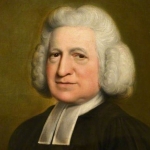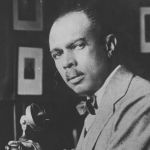Moving from Cheer to joy, from Joy to All,
I take a box
And add it to my wild rice, my Cornish game hens.
The slacked or shorted, basketed, identical
Food-gathering flocks
Are selves I overlook. Wisdom, said William James,
Is learning what to overlook. And I am wise
If that is wisdom.
Yet somehow, as I buy All from these shelves
And the boy takes it to my station wagon,
What I’ve become
Troubles me even if I shut my eyes.
When I was young and miserable and pretty
And poor, I’d wish
What all girls wish: to have a husband,
Is womanish:
That the boy putting groceries in my car
See me. It bewilders me he doesn’t see me.
For so many years
I was good enough to eat: the world looked at me
And its mouth watered. How often they have undressed me,
The eyes of strangers!
And, holding their flesh within my flesh, their vile
Imaginings within my imagining,
I too have taken
The chance of life. Now the boy pats my dog
And we start home. Now I am good.
The last mistaken,
Ecstatic, accidental bliss, the blind
happiness that, bursting, leaves upon the palm
Some soap and water—
It was so long ago, back in some Gay
Twenties, Nineties, I don’t know . . . today I miss
My lovely daughter
Away at school, my sons away at school,
My husband away at work—I wish for them.
The dog, the maid,
And I go through the sure unvarying days
At home in them. As I look at my life,
I am afraid
Only that it will change, as I am changing:
I am afraid, this morning, of my face.
It looks at me
The smile I hate. Its plain, lined look
Of gray discovery
Repeats to me: “You’re old.” That’s all, I’m old.
And yet I’m afraid, as I was at the funeral
I went to yesterday.
My friend’s cold made-up face, granite among its flowers,
Her undressed, operated-on, dressed body
Were my face and body.
As I think of her and I hear her telling me
How young I seem; I am exceptional;
I think of all I have.
But really no one is exceptional,
No one has anything, I’m anybody,
I stand beside my grave
Confused with my life, that is commonplace and solitary.


















Comment form: